Top 15 Films and Series for the Intellectually Curious
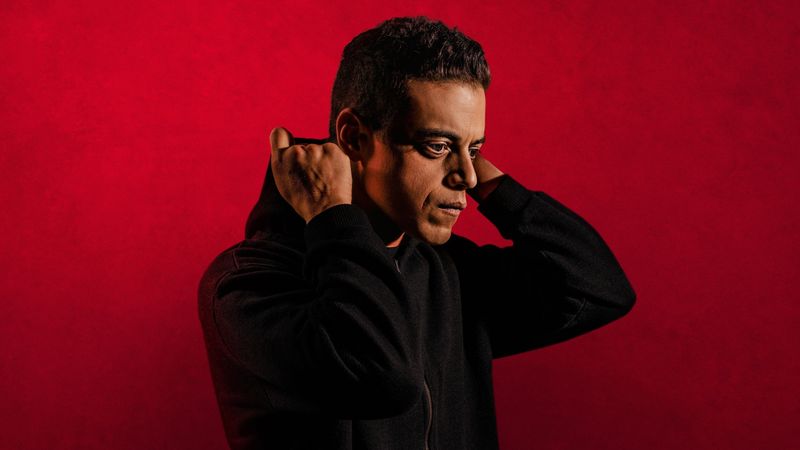
If you love stories that challenge your mind and spark deep conversations, you’re in the right place. Some movies and TV shows don’t just entertain—they make you question reality, explore big ideas, and see the world differently. Whether it’s a film about dreams within dreams or a series that explores what makes us human, these picks will leave you thinking long after the credits roll.
1. Inception (2010)

Christopher Nolan crafted something extraordinary when he made this film about professional thieves who steal secrets from people’s dreams. Leonardo DiCaprio plays Dom Cobb, a man haunted by his past who gets one last chance at redemption through an impossible mission: planting an idea deep in someone’s subconscious.
The movie twists and turns through multiple dream layers, each with its own rules and dangers. You’ll find yourself questioning what’s real and what’s imagined as the story unfolds. Every scene is packed with stunning visuals, from cities folding in half to zero-gravity hallway fights.
What makes this film brilliant is how it explores consciousness and perception while keeping you on the edge of your seat.
2. The Matrix (1999)
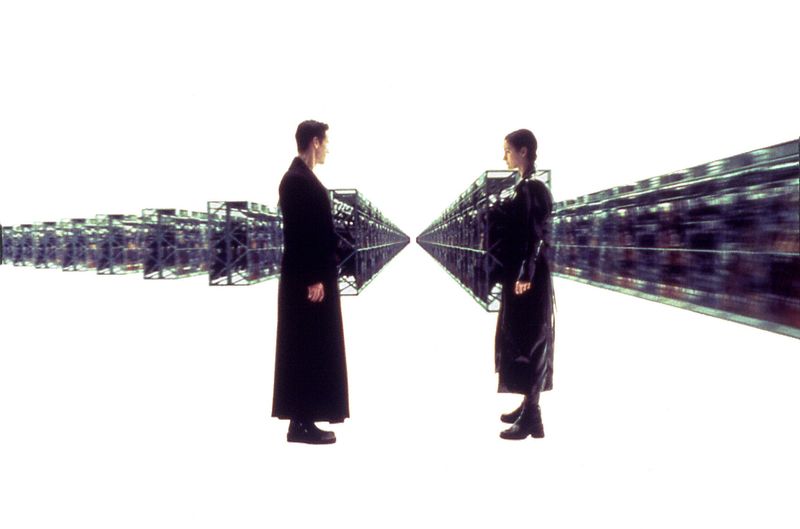
Imagine discovering that your entire life is a computer simulation designed to keep humanity enslaved. That’s exactly what happens to Neo, a computer hacker who learns the shocking truth about his world from mysterious rebels.
The Wachowskis created a groundbreaking film that blends martial arts, philosophy, and cutting-edge special effects. Bullet-time sequences became legendary, and the story asks profound questions about free will and consciousness. Keanu Reeves delivers an iconic performance as the reluctant hero who must choose between comfortable ignorance and painful truth.
This cyberpunk masterpiece changed action movies forever while making audiences wonder about the nature of their own reality and choices.
3. Arrival (2016)
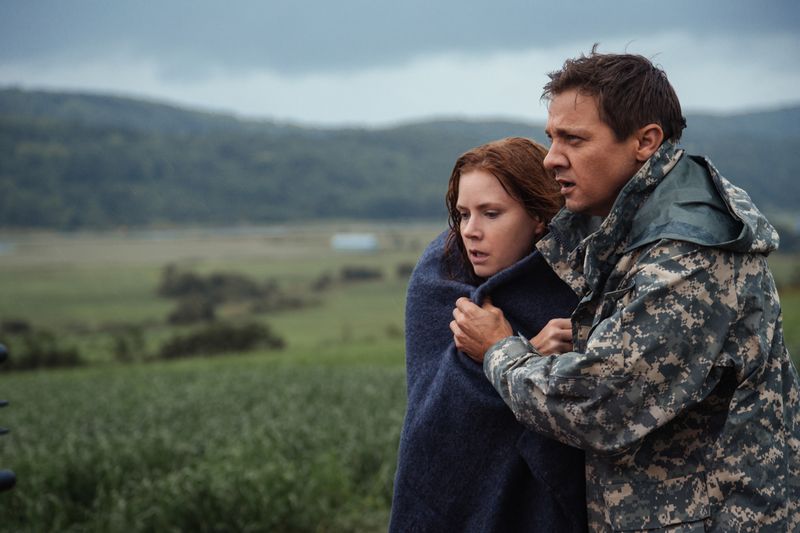
When mysterious alien ships appear around Earth, the military recruits linguist Louise Banks to communicate with the visitors. What starts as a first-contact story becomes something far more profound about how language shapes our understanding of time itself.
Amy Adams gives a powerful performance as she slowly decodes the aliens’ circular written language. Director Denis Villeneuve creates a thoughtful, quiet sci-fi experience that values intelligence over explosions. The film explores determinism and whether knowing your future would change your choices.
Based on Ted Chiang’s short story, this movie proves that alien encounter films can be deeply emotional and intellectually satisfying at the same time.
4. Eternal Sunshine of the Spotless Mind (2004)
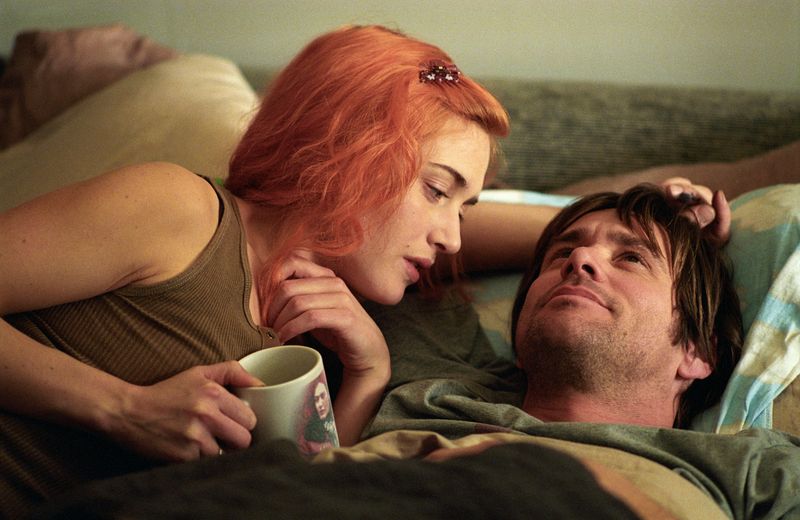
After a painful breakup, Joel discovers his ex-girlfriend Clementine has erased all memories of their relationship from her mind. Heartbroken and angry, he decides to undergo the same procedure, but halfway through, he realizes he wants to keep those memories after all.
Director Michel Gondry and writer Charlie Kaufman created something truly original here. The film unfolds backward through Joel’s memories as they’re being deleted, creating a poignant meditation on love and loss. Jim Carrey and Kate Winslet deliver career-best performances that feel raw and honest.
This poetic exploration asks whether painful memories are worth keeping and if erasing the past would truly bring happiness or just emptiness.
5. 12 Angry Men (1957)
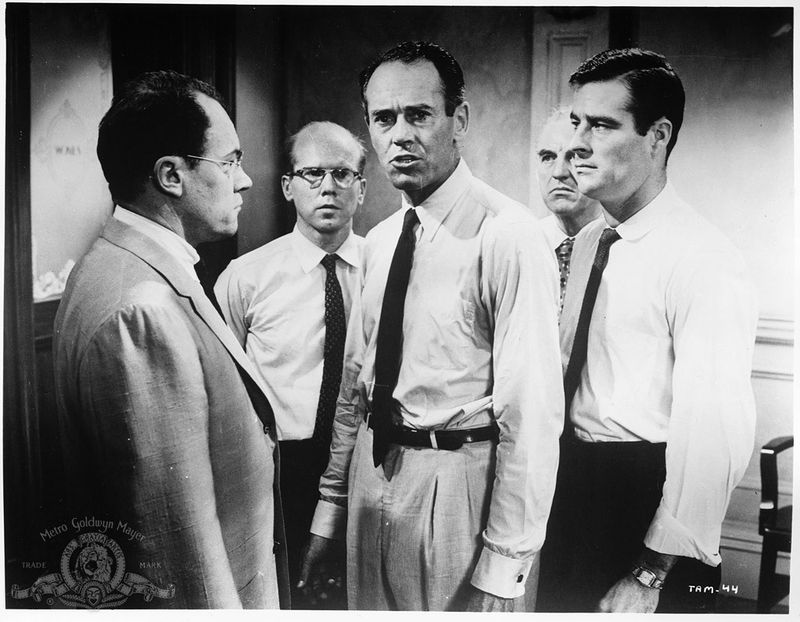
A young man stands accused of murder, and twelve jurors must decide his fate. What seems like an open-and-shut case becomes a fascinating study in logic, prejudice, and moral courage when one juror votes not guilty.
Sidney Lumet directed this masterpiece that takes place almost entirely in one sweltering jury room. Henry Fonda plays the lone dissenter who forces his fellow jurors to examine the evidence and their own biases. Watching reasonable doubt emerge through careful questioning is absolutely gripping.
The film demonstrates how persuasion works, how group dynamics shift, and why critical thinking matters more than quick judgments in deciding someone’s future and freedom.
6. Blade Runner 2049 (2017)
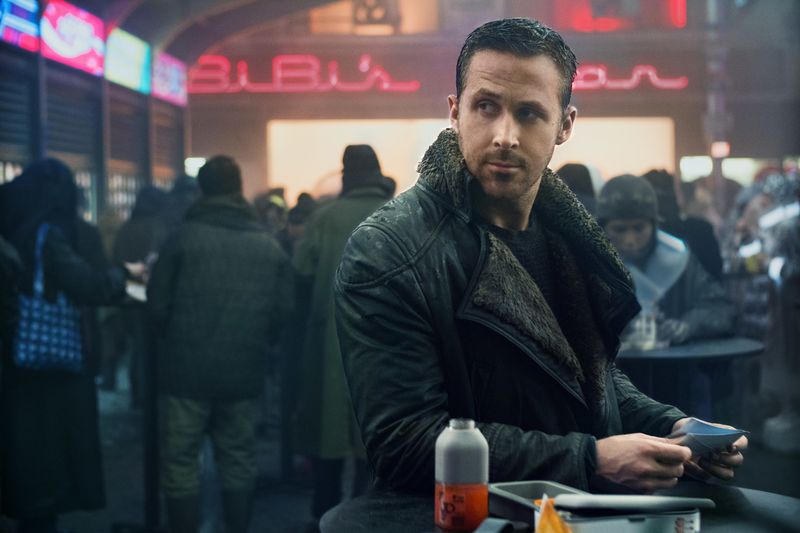
Officer K is a blade runner—someone who hunts down rogue replicants, which are bioengineered humans. But K himself is a replicant, and when he uncovers a long-buried secret, his entire understanding of identity and purpose gets shaken to its core.
Denis Villeneuve crafted a stunning sequel that honors the original while exploring new philosophical territory. Ryan Gosling gives a subtle performance as someone searching for meaning in a world that considers him disposable. Roger Deakins’ cinematography creates unforgettable images of a decaying future.
The film asks what makes someone truly human—is it biology, memories, or the ability to love and sacrifice for others beyond yourself?
7. The Seventh Seal (1957)
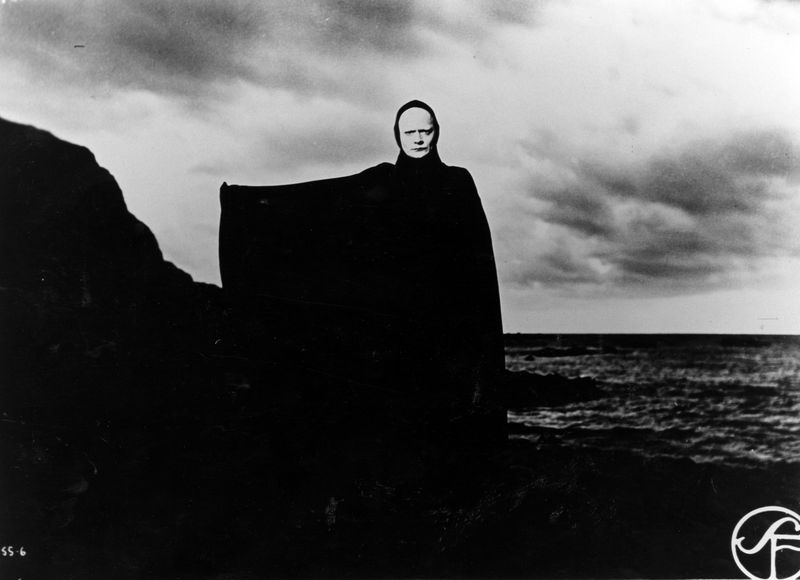
A medieval knight returns from the Crusades to find his homeland ravaged by plague. When Death comes to claim him, the knight challenges him to a chess game, hoping to delay his fate while searching for answers about God and existence.
Ingmar Bergman’s masterpiece confronts mortality, faith, and meaning head-on with unforgettable imagery. Max von Sydow plays the tormented knight whose questions about divine silence feel timeless and universal. The famous chess game with Death has become one of cinema’s most iconic images.
Though made decades ago, this Swedish classic tackles existential questions that remain relevant: How do we find meaning when faced with death and uncertainty about what comes after?
8. A Beautiful Mind (2001)
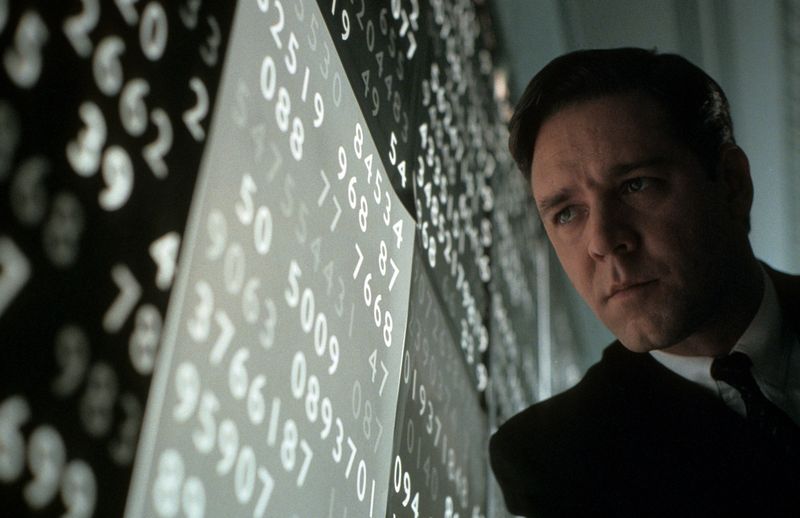
John Nash was a brilliant mathematician whose groundbreaking work in game theory earned him a Nobel Prize. But his genius came with a devastating cost: paranoid schizophrenia that blurred the line between reality and delusion throughout his life.
Ron Howard directed this biographical drama that shows both Nash’s intellectual achievements and his personal struggles. Russell Crowe delivers a powerful performance, making you experience Nash’s confusion and determination. The film cleverly reveals Nash’s condition in a way that surprises viewers midway through.
What emerges is an inspiring story about the complexity of the human mind, the thin line between genius and madness, and one man’s courage to overcome his illness.
9. Black Mirror (2011–2019)

Creator Charlie Brooker presents standalone episodes that function like modern-day Twilight Zone stories, each examining how technology might twist human nature in disturbing ways. From social media rating systems to consciousness uploading, nothing is off-limits.
Each episode tells a complete story with different characters and settings, so you can watch in any order. Some episodes are terrifying warnings, while others offer glimmers of hope or dark comedy. The show predicts technological trends with eerie accuracy.
What makes this anthology series essential viewing is its willingness to explore uncomfortable questions about our relationship with devices, social media, and artificial intelligence before they become reality.
10. Westworld (2016–2022)
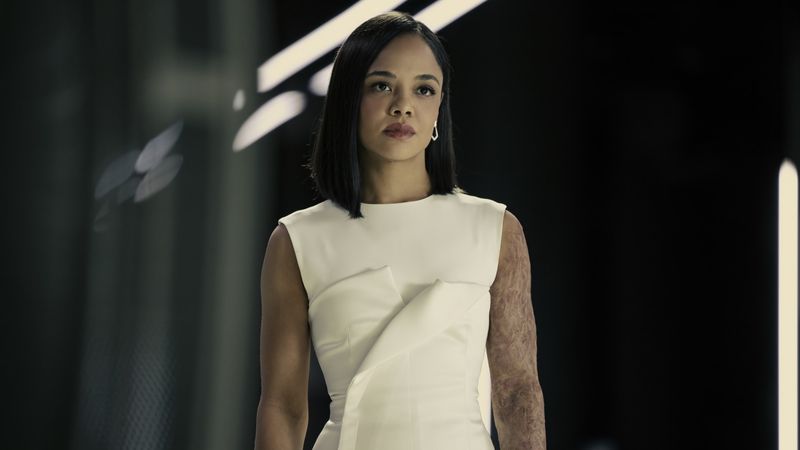
A futuristic theme park lets wealthy guests live out their wildest fantasies among lifelike android hosts. But when the robots start remembering past experiences and questioning their existence, the line between programmed behavior and genuine consciousness becomes terrifyingly unclear.
Based on Michael Crichton’s film, this HBO series expands the concept into a complex meditation on free will and identity. Evan Rachel Wood and Thandie Newton deliver haunting performances as hosts awakening to their true nature. The nonlinear storytelling keeps you guessing constantly.
The show brilliantly explores what separates humans from machines and whether artificial beings deserve rights once they achieve self-awareness and emotions.
11. Dark (2017–2020)
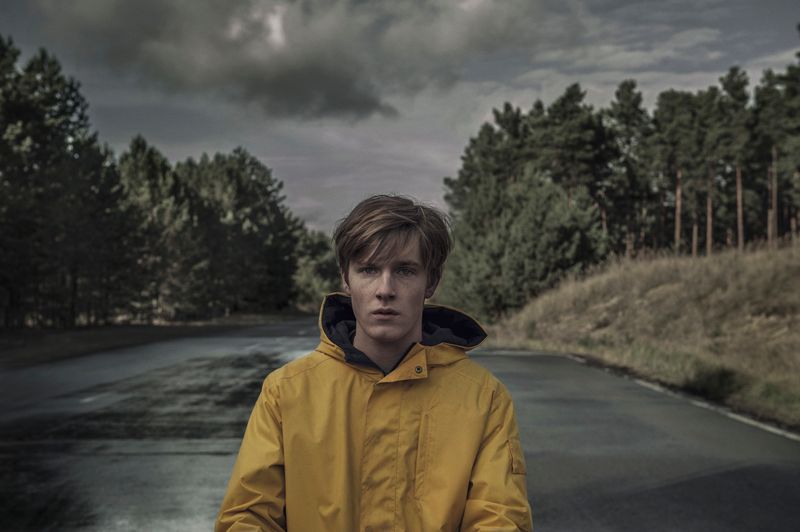
In a small German town, children start disappearing under mysterious circumstances. The investigation uncovers a time-travel conspiracy spanning four generations, where past, present, and future are intricately connected through family bloodlines and scientific experiments.
This Netflix series from Germany is incredibly complex, requiring full attention to track the characters across different time periods. The show explores determinism versus free will, asking whether we can change destiny or if everything is predetermined. The production values and acting are exceptional throughout.
Fair warning: you’ll need a family tree chart to keep everyone straight, but the payoff is a brilliantly constructed puzzle about fate and consequence.
12. The OA (2016–2019)
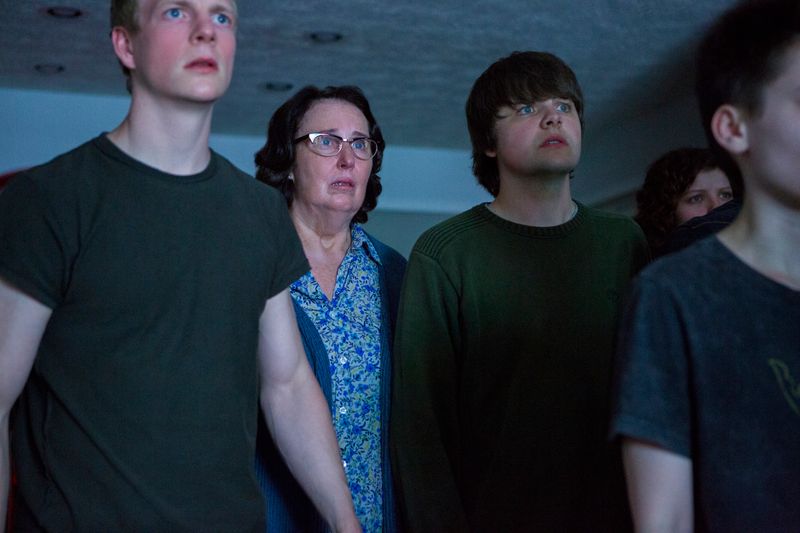
A young woman returns after being missing for seven years, now calling herself The OA and claiming to have been held captive while experiencing near-death journeys to other dimensions. She recruits five strangers to help her rescue others trapped between worlds.
Brit Marling and Zal Batmanglij created something truly unique that defies easy categorization. The show blends science fiction, spirituality, and psychological drama in ways that polarize viewers—you’ll either be captivated or confused. The interpretive movements the characters perform seem silly until the finale reveals their purpose.
This metaphysical odyssey asks big questions about consciousness, parallel dimensions, and whether faith can literally open doors to other realities and possibilities.
13. Mr. Robot (2015–2019)
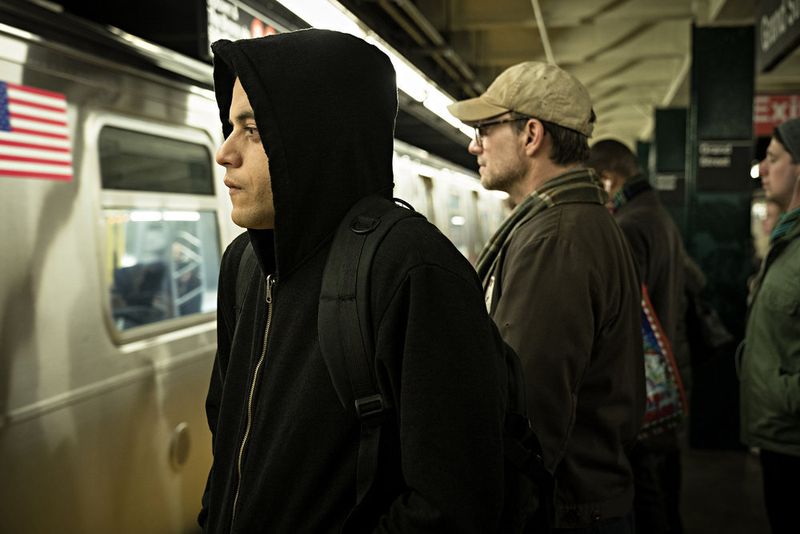
Elliot Alderson is a cybersecurity engineer by day and vigilante hacker by night, but his social anxiety and depression make reality hard to navigate. When a mysterious figure called Mr. Robot recruits him to take down corporate America, Elliot’s grip on reality becomes increasingly unstable.
Rami Malek won an Emmy for his portrayal of Elliot’s fractured psyche and unreliable narration. Creator Sam Esmail uses unconventional framing and editing to put viewers inside a paranoid mind. The show accurately depicts hacking culture while exploring identity and mental illness.
This psychological thriller asks whether one person can change a corrupt system and what happens when your greatest enemy might be yourself all along.
14. Devilman Crybaby (2018)

Akira Fudo merges with a demon to gain supernatural powers while keeping his human heart, becoming Devilman. As demons begin possessing humans worldwide, society collapses into paranoia and violence, forcing Akira to question what truly separates good from evil.
Director Masaaki Yuasa’s bold animation style brings Go Nagai’s classic manga to life with intense visuals and unflinching brutality. This isn’t a kids’ show—it explores humanity’s capacity for cruelty, mob mentality, and the blurry line between monster and human. The emotional gut-punch ending stays with you.
This philosophical anime asks whether humans are worth saving when fear turns them into monsters worse than any demon could ever be naturally.
15. Severance (2022– )

Mark Scout works for Lumon Industries, where a surgical procedure has separated his work memories from his personal ones. His work self has no idea what his outside life is like, and vice versa. But when both versions start questioning this arrangement, corporate secrets begin unraveling.
Ben Stiller directs this unsettling series that feels like a Kafka nightmare set in a modern office. Adam Scott brilliantly plays two versions of the same person with different personalities. The retro-futuristic production design creates an unnervingly cheerful dystopia.
This darkly comic thriller explores work-life balance taken to a horrifying extreme, asking what we’d sacrifice for a perfect separation between professional obligations and personal identity.

Comments
Loading…